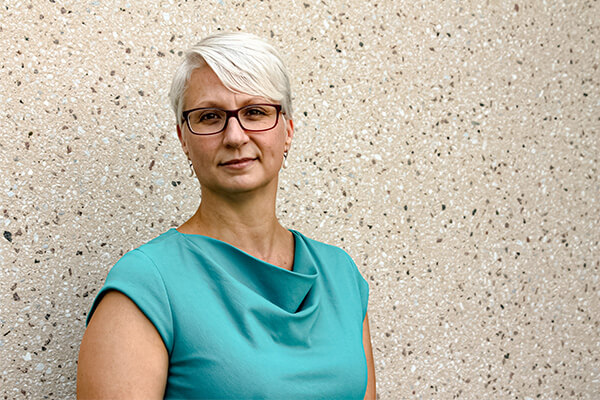The Ph.D. in Educational Leadership is for full-time working professionals with career goals in education and other research-based institutions.
The Doctor of Philosophy (Ph.D.) in Educational Leadership program is designed to serve full-time working professionals with career goals in a wide range of organizations such as PK-12, higher education, and other research-based institutions (e.g., policy centers, think tanks, education associations). Ph.D. learners work closely with faculty and peers to think deeply, examine critically, and understand theoretically the opportunities and challenges facing educational organizations and related institutions.
Defining features of our program are:
- Low-residency model for working professionals
- Cohort learning model
- Faculty research mentoring
- Global learning experience
Register today to attend an upcoming Ed.D. and Ph.D. in Educational Leadership webinar.
Learn More About our Program's Defining Features
Low-residency Delivery Model for Working Professionals
Recognizing the challenges faced by full-time working professionals, our low-residency model is designed to accommodate busy schedules. Our model preserves the benefits of in-person learning experiences while capitalizing on the flexibility of weekday Zoom classes. Our classes are a combination of selected Saturday in-person meetings at our Winchester and Loudoun locations and weekday Zoom classes in the evening.
Cohort Learning Model
The cohort is a defining feature of our program. Cohorts are composed of mid- and senior-career professionals enrolled in our Educational Leadership Ph.D. and Ed.D. programs who move through a sequence of required program and research core together. Having a combined Ed.D. and Ph.D. cohort creates connections between learners grounded in practice and those oriented toward research. This provides ongoing opportunities to learn from and with colleagues of diverse professional experiences and perspectives. The cohort provides a source of support for learners juggling work, school, family, and other obligations. We also integrate opportunities for cohorts to interact at different stages of coursework and dissertation. Through the cohort, learners also grow their network of leader colleagues across educational settings and related organizations.
Faculty Research Mentoring
Through our Directed Graduate Research (RST 798) course, learners collaborate with faculty on new and ongoing research projects.
Global Learning Experiences
Shenandoah offers multiple international study opportunities for Ph.D. learners on campus and abroad. Regularly, we offer global experiential learning elective courses that include short study abroad trips to learn about educational organizations. In recent years, learners have visited and studied organizations in Finland, Ireland, and Australia as well as Scotland in Spring 2024. In addition, we regularly embed COIL (Collaborative Online International Learning Program) experience, a form of virtual exchange, into our courses.
Classes
Our program offers two concentrations: Initial Administrative Licensure or Leadership in Education (non-licensure PreK-12 and postsecondary).
A minimum of 62 credits is required. Our program is organized around an interdisciplinary leadership and research core that is complemented by the learner’s chosen concentration. Our doctoral faculty work closely and collaboratively with you to create an environment that is both challenging and supportive.
|
Educational Leadership Core |
15 credits |
|
LST 735 Organizational Theory & Behavior |
3 |
|
LST 710 Leadership Theory & Application |
3 |
|
LST 720 Societal Factors |
3 |
|
LST 740 Governance & Public Policy |
3 |
|
LST 626 Change in Public Sector & Nonprofit Organizations |
3 |
|
Research Methods Core |
16 credits |
|
RST 765 Foundations of Doctoral Research |
3 |
|
RST 775 Quantitative Methods for Doctoral Research |
3 |
|
RST 776 Advance Quant. Methods in Doctoral Research |
3 |
|
RST 784 Qualitative Research: Methods & Applications |
3 |
|
RST 785 Advanced Qual. Methods in Doctoral Research |
3 |
|
Applied Research Core |
7 credits |
|
RST 790 Quantitative/Qualitative Proposal |
2 |
|
RST 791 Quantitative/Qualitative Pilot |
2 |
|
RST 798 Directed Graduate Research |
3 |
|
Concentration |
9/15 credits |
|
Leadership in Education (non-licensure PreK-12 and postsecondary) |
9 |
|
Initial Administrative Licensure |
15 |
|
Dissertation |
15 credits |
|
RST 799 Dissertation offered in 1, 2, 3, 4, 5 credit options |
15 |




